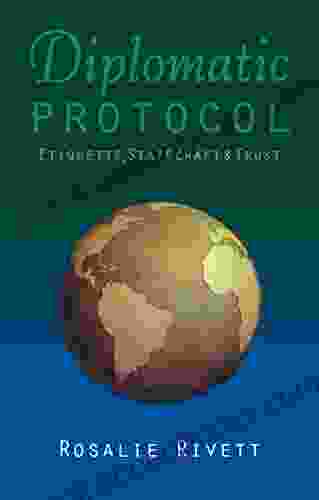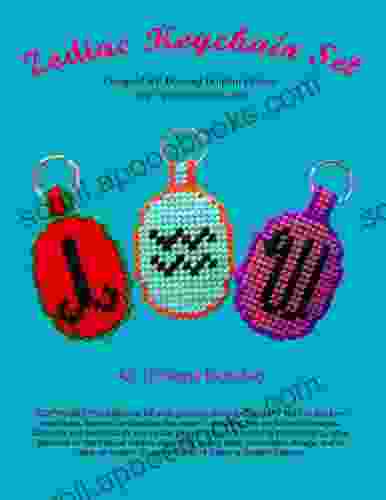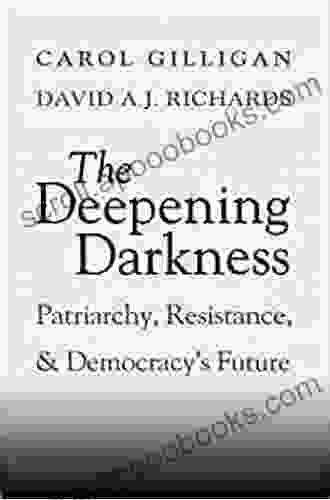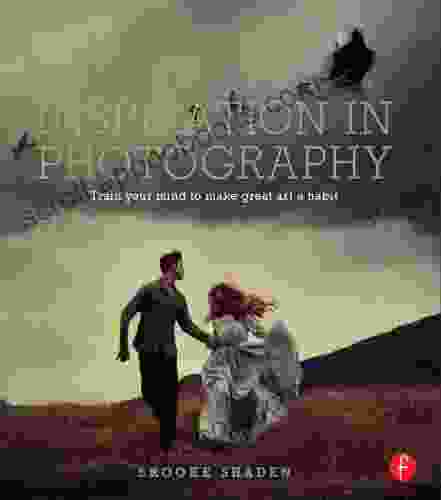Diplomacy is the art of conducting international relations through negotiation, dialogue, and other peaceful means. It is a complex and delicate process that requires a deep understanding of cultural differences, international law, and the intricacies of statecraft. Diplomatic protocol is a set of rules and customs that govern the conduct of diplomatic relations between nations. It is essential for maintaining good relations and avoiding misunderstandings or conflicts.
4.8 out of 5
| Language | : | English |
| File size | : | 1441 KB |
| Text-to-Speech | : | Enabled |
| Screen Reader | : | Supported |
| Enhanced typesetting | : | Enabled |
| Word Wise | : | Enabled |
| Print length | : | 208 pages |
This comprehensive guide to diplomatic protocol will provide you with a thorough understanding of its principles, practices, and significance. You will learn about the different types of diplomatic missions, the roles and responsibilities of diplomats, and the importance of cultural sensitivity. You will also gain insights into the diplomatic process, including the negotiation of treaties and the resolution of international disputes.
Whether you are a diplomat, a businessperson, a student of international relations, or simply someone who is interested in global affairs, this book will provide you with the knowledge and skills you need to navigate the complex world of diplomacy.
Chapter 1: The Principles of Diplomatic Protocol
The principles of diplomatic protocol are based on the principles of international law, which govern the conduct of relations between states. These principles include the principles of sovereignty, equality, reciprocity, and non-interference. Sovereignty means that each state has the right to govern itself without interference from other states. Equality means that all states are equal before the law, regardless of their size or power. Reciprocity means that states should treat each other in the same way. Non-interference means that states should not interfere in the internal affairs of other states.
These principles are reflected in the rules and customs of diplomatic protocol. For example, the rule that diplomats must present their credentials to the head of state of the receiving country is based on the principle of sovereignty. The rule that diplomats must not interfere in the internal affairs of the receiving country is based on the principle of non-interference.
Chapter 2: The Practice of Diplomatic Protocol
The practice of diplomatic protocol is governed by a set of rules and customs that have evolved over centuries. These rules and customs cover a wide range of topics, including the following:
- The exchange of diplomatic missions
- The role of diplomatic agents
- The conduct of diplomatic negotiations
- The settlement of international disputes
Diplomatic missions are the official representatives of one state in another. They are headed by a diplomatic agent, who is usually an ambassador or a high commissioner. Diplomatic agents are responsible for representing their country's interests in the receiving country. They also serve as a channel of communication between their government and the government of the receiving country.
Diplomatic negotiations are conducted between diplomatic agents. The goal of diplomatic negotiations is to reach an agreement that is acceptable to both parties. Diplomatic negotiations can cover a wide range of topics, including trade, security, and human rights.
International disputes can be settled through diplomatic negotiations. If diplomatic negotiations fail, however, states may resort to other means of dispute settlement, such as arbitration or mediation.
Chapter 3: The Importance of Cultural Sensitivity
Cultural sensitivity is an essential aspect of diplomatic protocol. Diplomats must be aware of the cultural differences between their own country and the countries they are serving in. They must be able to adapt their behavior and communication style to the local culture.
For example, in some cultures it is considered失礼to make direct eye contact. In other cultures, it is considered失礼to avoid making eye contact. Diplomats must be aware of these cultural differences and adjust their behavior accordingly.
Cultural sensitivity is also important in the conduct of diplomatic negotiations. Diplomats must be aware of the different cultural values and interests of the parties involved in the negotiations. They must be able to find common ground and build trust between the parties.
Chapter 4: The Diplomatic Process
The diplomatic process is a complex and delicate process. It requires a deep understanding of international law, diplomacy, and statecraft. The diplomatic process can be divided into three stages:
- Pre-negotiation
- Negotiation
- Post-negotiation
The pre-negotiation stage involves the preparation for negotiations. This includes gathering information, identifying the interests of the parties involved, and developing a negotiating strategy.
The negotiation stage involves the actual negotiations between the parties. This stage can be lengthy and complex, and it requires a great deal of skill and patience.
The post-negotiation stage involves the implementation and follow-up of the agreement that was reached. This stage is important for ensuring that the agreement is implemented effectively and that it meets the needs of all parties involved.
Diplomatic protocol is a complex and fascinating subject. It is a vital part of international relations and plays a key role in maintaining good relations between nations. This guide has provided you with a comprehensive overview of diplomatic protocol, including its principles, practices, and significance. By understanding diplomatic protocol, you will be better equipped to navigate the complex world of diplomacy and to contribute to the peaceful resolution of international disputes.
If you are interested in learning more about diplomatic protocol, I encourage you to explore the resources listed in the bibliography. You can also find more information on the websites of the United Nations and the diplomatic missions of different countries.
Bibliography
- Berridge, G. R. (2002). Diplomacy: Theory and practice (3rd ed.). Palgrave Macmillan.
- Cull, N. J. (2008). Diplomacy: A very short . Oxford University Press.
- Kissinger, H. A. (1994). Diplomacy. Simon & Schuster.
- United Nations. (2005). Diplomatic protocol and practice. United Nations Publications.


























































































